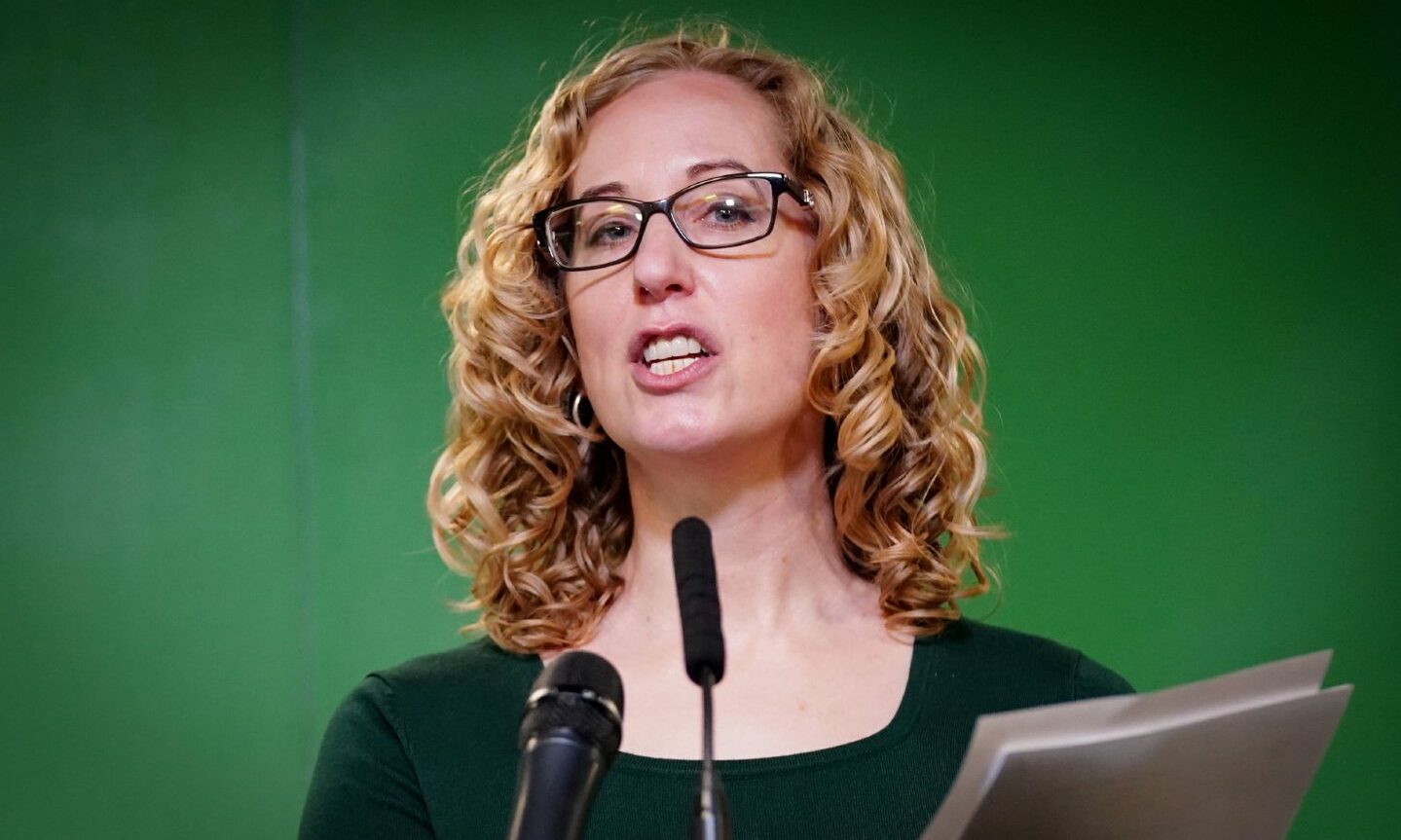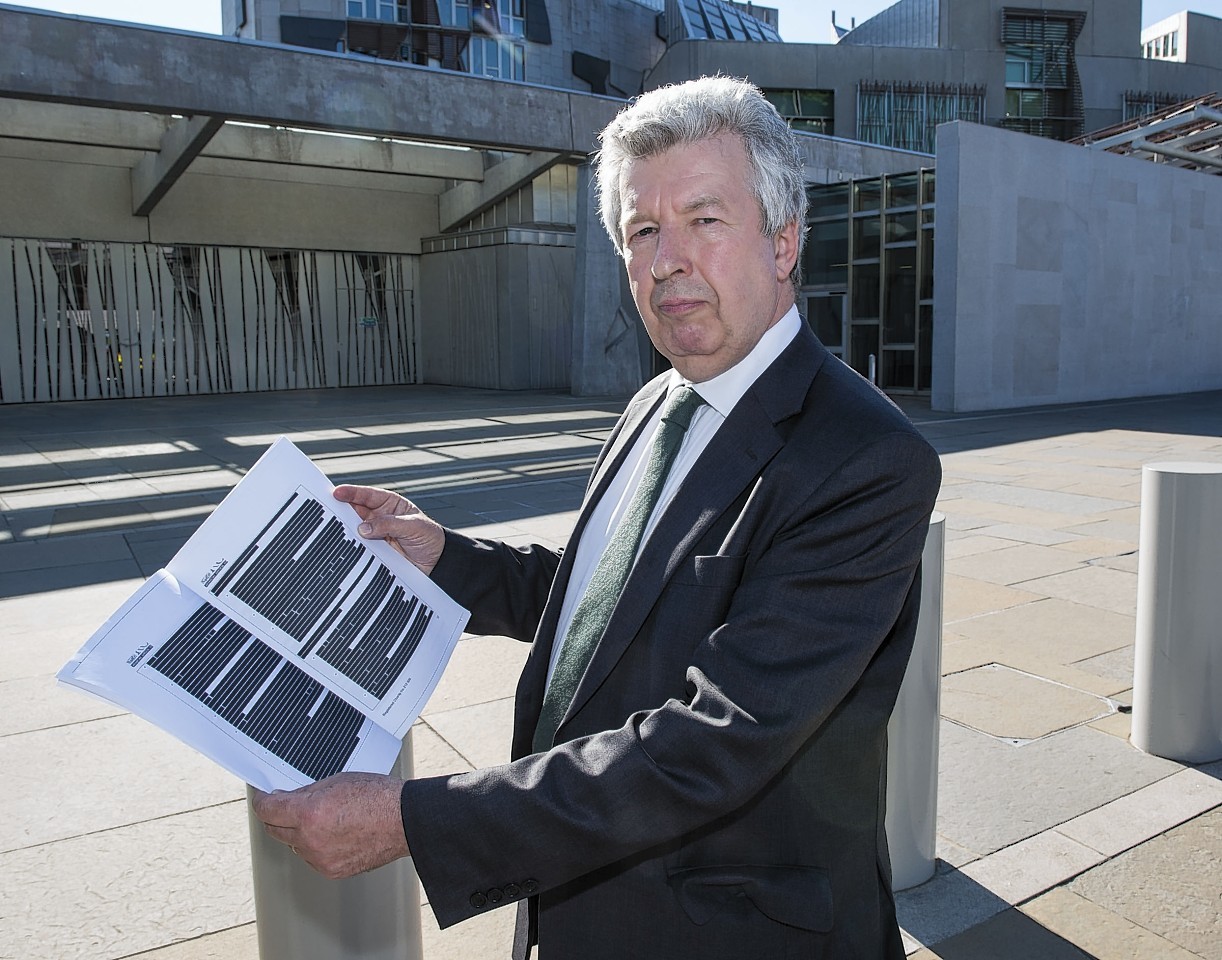
It was a statement which escaped close scrutiny amid the turbulence of Nicola Sturgeon’s unexpected resignation as Scotland’s First Minister.
But when Scottish Secretary, Alister Jack, urged the Scottish Government to pause its controversial deposit return scheme and argued it would be better to create a UK-wide system to minimise disruption to the drinks industry, delaying such a move to 2025, it heightened fears about devolution coming under attack from Westminster.
It comes after Mr Jack used a Section 35 order – a mechanism a UK Secretary of State can use to stop a bill getting royal assent, to block the gender recognition bill (GRR), which had previously been passed by Holyrood. He said in a statement last month about the decision that it was “absolutely not” about the UK Government being able to veto Scottish Parliament legislation “whenever it chooses”.
‘I didn’t take this decision lightly’
He said: “This is the first time [a Section 35 order has been used] and I didn’t take this decision at all lightly.
“The legal advice I have says that citizens right across the United Kingdom including Scotland are impacted – there’s adverse effects – by this legislation, so that is why I stopped it going to royal assent. The democratic act is the Scotland Act 1998. It was brought forward by a Labour Government, it created the Scottish Parliament, it was voted for by the SNP at the time, supported by the SNP at the time.”
Subsequent opinion polls have shown that the majority of Scots were opposed to the GRR policy – and there has been widespread criticism from the business and hospitality sector about the consequences of the DRS venture which is scheduled to begin across Scotland on August 16.
The scheme asks customers to pay an extra 20p when purchasing drinks in a can or bottle, with the deposit returned when they bring back the empty container for recycling. But there has been criticism from manufacturers saying there is a lack of detail about the plans, with others concerned it will create a trade barrier between Scotland and England.
‘A dangerous time for devolution’
However, while these have been and continue to be contentious issues, Mr Jack’s interventions have sparked fears in some quarters that, given the Conservatives’ recent electoral fortunes north of the Border – they trailed behind the SNP and Labour at the 2021 Holyrood elections – they might be prepared to engineer a power grab in other areas where they disagree with the actions of the Scottish Government.
The SNP is certainly convinced this is a possibility and one of them told the Press and Journal she thought there has “never been a more dangerous time for devolution”.
Audrey Nicoll, the MSP for Aberdeen South and North Kincardine, expressed her concerns as tensions rise between the UK Government and their Scottish counterparts.
She said: “It is crystal clear that there has never been a more dangerous time for devolution or a necessary time to become independent and escape Westminster control for good when, with each day that passes, Scottish democracy and devolution seems to be facing new unfounded attacks from Westminster.
“Whether it be the unmitigated disaster of Brexit, Liz Truss’s catastrophic premiership or the blocking of Scotland’s democratically elected parliament from acting on the will of the Scottish people, it is beyond outrageous that Scotland is simply expected to silently suffer the devastating consequences of Westminster control”.
DRS has garnered critics from all sides
Veteran Nationalist MSP, Fergus Ewing, has been the most vociferous of those who have broken ranks in describing the DRS initiative as equivalent to the captain of the Titanic steering straight for the iceberg.
Ewing was particularly disparaging about the lack of clarity in the proposals from Lorna Slater, the Scottish Green MSP and Minister for Circular Economy, who is in charge of the DRS project, and said, prior to Ms Sturgeon’s resignation on Wednesday: “What’s important is we have a scheme that works. And, unfortunately, this scheme has major flaws, fundamental flaws that I don’t think can be fixed or remedied.
“There needs to be a halt. I think we need to pause it for at least 18 months.”
Nonetheless, while the UK Government still has the right to question and condemn policies being implemented in Scotland, it has been warned not to grow accustomed to deploying Section 35 as a means of keeping the devolved nations in their place.
Andy Maciver, the director of Message Matters and the former head of communications for the Scottish Conservatives, told me: “Logically, there is a case for use of section 35, because it is no secret that some Scottish Government legislation is poorly drafted.
“And politically, there is a case for use of section 35 because, in an area such as gender recognition, the UK Government can see an opportunity to be on the ‘right side’ of a contentious debate. But these are largely unlinked. The relative popularity of blocking the gender identity Bill does not signal support for use of the section 35; it signals concern about the implications of the Bill for women’s safety.
‘They’re going to have a hard landing’
“But if the UK Government thinks that they have a green light to dive into section 35 every time they don’t like a Bill, they are going to have a hard landing.
“The fundamentals have not changed; there are very many unionists who vehemently dislike the prospect of London telling Scotland what to do, and every time that prospect becomes a reality, soft unionist voters are pushed towards voting Yes.”
The PM, Rishi Sunak, paid tribute to the outgoing Ms Sturgeon, and affirmed his desire to build good relations with whoever succeeds her as First Minister. But, on a wide range of issues, from GRR and DRS to the future of the NHS and the Conservatives’ Strikes (Minimum Service Levels) Bill, there is a gaping void between the parties.
Former Labour MSP Lewis Macdonald is among those who feel that the situation has to be addressed or there will be greater flashpoints over devolved matters.
More talk, less sabre-rattling
He said: “Devolution is a division of powers between two tiers of government, so of course it requires political will to make it work. That means MSPs should not pass laws in areas which are reserved to Westminster, while UK Ministers should let MSPs get on with legislating for Scotland in devolved areas like education and health.
“There are bound to be grey areas in any division of powers, but ministers in both governments need to talk to each other in good time to sort things out.
“Tories and Nationalists may be lukewarm about devolution, for different reasons, but they owe it to the people to try a lot harder to make it work”.
There’s no sign of a ceasefire
Circularity Scotland has worked closely with businesses of all sizes to help them prepare for the Deposit Return Scheme and, in the last few weeks, has organised workshops across Scotland attended by more than 1,000 producers, retailers and hospitality providers to help with registration and answer their questions.
A spokesman said: “While we don’t underestimate the scale of the challenges in introducing a scheme of this scale, we can’t lose sight of the opportunity DRS provides – to transform how Scotland recycles and help protect our environment for generations to come. It is coming in on August 16 and we’re up to the challenge.”
Ultimately, though, not everybody shares his confidence. And Mr Jack is waiting in the wings if the Scottish Government proceeds on its current timescale.





